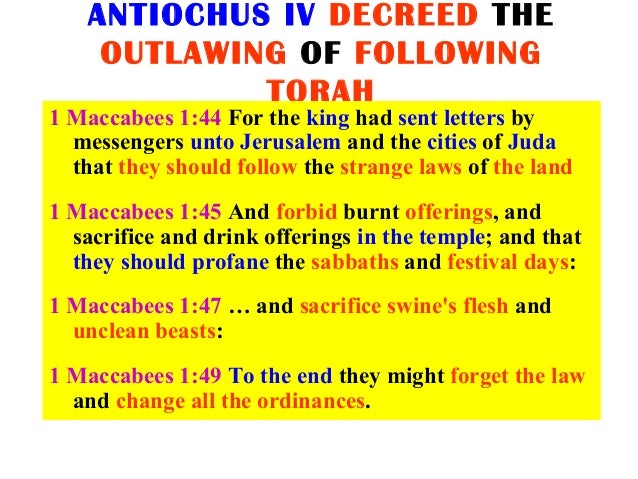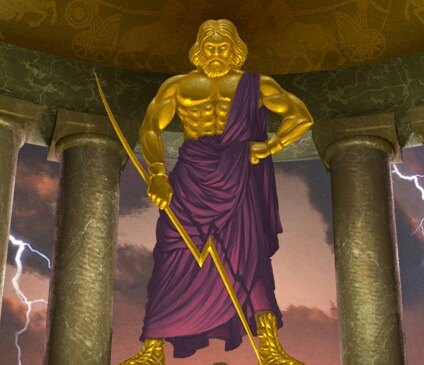
After
years of postponements, war against the ISIS, genocide by Saddam Hussein, civil
war and infighting, the Kurdish autonomous region in Iraq will vote on a
referendum for independence on September 25, 2017.
Above, the Assyrian symbol of Asshur,vaguely similar to the modern image for Kurdistan pictured above.
It’s a dream come true for millions on the road to
self-determination that was denied Kurds a hundred years ago when the victors
of the First World War decided to carve up the Middle East into new states.
Voices
in Israel have supported Kurdish independence and see potential allies. MK
Ksenia Svetlova (Zionist Union) called upon the government to “support the
Kurdish nation in its striving for independence and to recognize the results of
the referendum.”
Since the 1990s, the Kurdish region of northern Iraq has enjoyed an autonomous status. This was cemented in Iraq’s new constitutions after the US-led invasion in 2003. In 2005, the region held a referendum in which 98% of 1.9 million people voted for independence.
Since the 1990s, the Kurdish region of northern Iraq has enjoyed an autonomous status. This was cemented in Iraq’s new constitutions after the US-led invasion in 2003. In 2005, the region held a referendum in which 98% of 1.9 million people voted for independence.
Peter Galbraith wrote
in The New York Times at the time, “The news will not be
welcomed by American and British officials who have studiously ignored the
Kurdish independence movement, pretending that the unity of Iraq is not at
issue in the country’s transition to democracy.”
Galbraith – a former US ambassador to Croatia and senior fellow at the Center for Arms Control and Nonproliferation in Washington – noted that the Kurds collected 1.7 million signatures in their desire to show the Americans they were serious, whereas L. Paul Bremer, George W. Bush’s proconsul in Baghdad, wouldn’t even look at the issue.
Things are a bit different 12 years later. Kurdistan was one of the main bulwarks against ISIS and a key partner of the US-led 68 nation coalition. Kurds suffered thousands of casualties in their efforts to hold back the extremists. And politicians said that the people on whose land blood was shed deserve the right to determine their future.
On Wednesday, president of the Kurdistan Regional Government Masoud Barzani, photo above, tweeted, “I am pleased to announce that the date for the independence referendum has been set for Monday, September 25.” This is extremely close to the critical Jubilee date of September 23rd.
Barzani received support across Kurdistan’s political spectrum. A Kurdish Islamic Party statement read, “Referendum and independence are an inalienable and natural right.”
Galbraith – a former US ambassador to Croatia and senior fellow at the Center for Arms Control and Nonproliferation in Washington – noted that the Kurds collected 1.7 million signatures in their desire to show the Americans they were serious, whereas L. Paul Bremer, George W. Bush’s proconsul in Baghdad, wouldn’t even look at the issue.
Things are a bit different 12 years later. Kurdistan was one of the main bulwarks against ISIS and a key partner of the US-led 68 nation coalition. Kurds suffered thousands of casualties in their efforts to hold back the extremists. And politicians said that the people on whose land blood was shed deserve the right to determine their future.
On Wednesday, president of the Kurdistan Regional Government Masoud Barzani, photo above, tweeted, “I am pleased to announce that the date for the independence referendum has been set for Monday, September 25.” This is extremely close to the critical Jubilee date of September 23rd.
Barzani received support across Kurdistan’s political spectrum. A Kurdish Islamic Party statement read, “Referendum and independence are an inalienable and natural right.”
Kirkuk Gov. Najmaldin Karim, a member
of the Patriotic Union of Kurdistan and outspoken advocate of independence for
many years, said his city would support it. Kirkuk is one of the “disputed”
areas between the official Kurdish region and Baghdad. In the recent war with
ISIS, Kurds defended Kirkuk and today it is firmly in the hands of the KRG.
In the spring, the city began flying the Kurdish flag next to the Iraqi one. However the legality of polling in areas in Sinjar, Makhmour, Khanaquin – the major “disputed” areas with Baghdad, most of which are controlled by Kurdish Peshmerga – will remain a sticking point.
At the end of May, the Hashd al-Shaabi (PMU), a collection of mostly Shi’a militias that are part of the Iraqi government, swept past Peshmerga lines near Sinjar to reach the Syrian border. Shi’a politicians in Baghdad and PMU leaders have expressed opposition to Kurdish independence. This dovetails with Iran’s policy, which backs Baghdad’s view that Iraq must remain united.
But Kurdistan also has its allies. In recent meetings in Turkey, the Kurdish flag has been placed beside the Iraqi one. Turkey’s government is close to the KRG because they have shared economic and political interests. Kurdistan exports almost all its oil via Turkey, a necessity since the chaos of the war with ISIS cut the Kurdish region off from Baghdad.
In the spring, the city began flying the Kurdish flag next to the Iraqi one. However the legality of polling in areas in Sinjar, Makhmour, Khanaquin – the major “disputed” areas with Baghdad, most of which are controlled by Kurdish Peshmerga – will remain a sticking point.
At the end of May, the Hashd al-Shaabi (PMU), a collection of mostly Shi’a militias that are part of the Iraqi government, swept past Peshmerga lines near Sinjar to reach the Syrian border. Shi’a politicians in Baghdad and PMU leaders have expressed opposition to Kurdish independence. This dovetails with Iran’s policy, which backs Baghdad’s view that Iraq must remain united.
But Kurdistan also has its allies. In recent meetings in Turkey, the Kurdish flag has been placed beside the Iraqi one. Turkey’s government is close to the KRG because they have shared economic and political interests. Kurdistan exports almost all its oil via Turkey, a necessity since the chaos of the war with ISIS cut the Kurdish region off from Baghdad.
Also, Turkey opposes the Shi’a militias
in Iraq and has waged a war of words with Baghdad over the presence of Turkish
troops in the Kurdish region, some of whom have been training mostly Sunni Arab
IDPs from Mosul. Kurdistan may also find other regional friends in Saudi Arabia
and elsewhere who want to counterbalance Iran’s influence in Iraq. Also the Turks during the Ottoman Empire governed Iraq by dividing it into three parts: Kurds, Sunni and Shia.
For its part, Israel has an historic friendship with the Kurds dating back to the 1960s, when Israelis trained Kurdish fighters to resist the Iraqi regime. Saddam Hussein, who launched the genocidal Anfal campaign against Kurds in the 1980s, also threatened to “burn” Israel with chemical weapons.
For its part, Israel has an historic friendship with the Kurds dating back to the 1960s, when Israelis trained Kurdish fighters to resist the Iraqi regime. Saddam Hussein, who launched the genocidal Anfal campaign against Kurds in the 1980s, also threatened to “burn” Israel with chemical weapons.
Israeli
members of Knesset and the prime minister have expressed support for the rights
of Kurds to seek independence.
“With respect to the Kurds, they are a warrior nation, a hint of the ancient Assyrian Empire, that is politically moderate, has proved they can be politically committed and is worthy of statehood,” Prime Minister Benjamin Netanyahu said in 2014.
“With respect to the Kurds, they are a warrior nation, a hint of the ancient Assyrian Empire, that is politically moderate, has proved they can be politically committed and is worthy of statehood,” Prime Minister Benjamin Netanyahu said in 2014.
Svetlova, a member of the Foreign Affairs and Defense
Committee and head of the Knesset Caucus for Strengthening Relations Between
the State of Israel and the Kurdish People, said the referendum will be a
“turning point for millions of Kurds in Iraq and around the globe. For the
first time in modern history they will have a real chance for sovereignty and
freedom.”

Antiochus Epiphanes, his bust is pictured below, King of the Assyrian Empire was the foreshadowing of the anti-christ of the Book of Revelation.

After being humiliated and forced
to leave Egypt, Antiochus’s vengeance was quickly turned upon Jerusalem. He
killed over eighty thousand men, women, and children and sold forty thousand
into slavery (2 Macc. v. 5-14).

The holy place was robbed of its treasures and
the temple was dedicated to Jupiter Olympus pictured above. (Note, Jupiter holds a lightening bolt a symbol of satan.) The temple was defiled by offering
a sow upon the altar and scattering its juice over all the sanctuary and
vessels.
He substituted the Jewish feasts with the drunken revelry of
Bacchanalia, forcing the Jews to worship Bacchus, the god of pleasure and wine, pictured below.

The licentious festival of Saturnalia, the worship of Saturn, was also enforced
upon the inhabitants.
He forbade the reading of the Holy Scriptures and the
tradition of circumcision. Throwing them headlong with their infants off of the
highest wall in Jerusalem, Antiochus killed two mothers who had circumcised
their children in defiance of the law. He also cut out the tongues of a
mother’s seven sons and after that had each of them roasted alive on a flat
iron (2 Macc. vii. 3-5). Then the mother herself was murdered. A detailed description of the violent atrocities and murder of
thousands of Jews by Antiochus while marching through Judea is found in 1
Maccabees 1:20-28 and 2 Maccabees 5:11-17.
But the carnage committed by the
impious Assyrian king is only a foretaste of what lies ahead for those who will
be swept away during the Great Tribulation. The persecution of the Jews and the saints under the “beast” will be much more intense and far-reaching during Daniel’s
Seventieth Week. The Apostle John “saw the souls of them that were beheaded for
the witness of Jesus, and for the word of God, and which had not worshiped the
beast, neither his image, neither had received his mark upon their foreheads,
or in their hands: and they lived and reigned with Christ a thousand years”
(Rev. 20:4).
The Lord continues to drop pieces of the jig saw puzzle into place. Will the birth of independent Kurdistan give rise to the anti-christ?


No comments:
Post a Comment